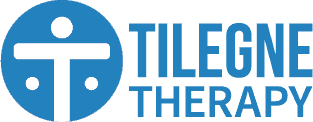Telehealth is an online alternative to in-person therapy. It allows for therapists to engage with patients via teleconferencing with video, audio and other visual prompts.
Telehealth is supported by Zoom, an online teleconferencing service. Each conference call is referred to as a ‘meeting’, where your clinician will be able to connect with you via the internet to deliver online sessions.
Internet access, a laptop/Ipad/desktop computer with video and audio capabilities. You will also need to download the Zoom program or app on your device – our staff can guide you through this. Before commencing, please sign the Teletherapy Information Consent form.
Telehealth is supported by NDIS, however currently Medicare and Private Health funds do not currently offer rebates. Please contact us for more details.
There is evidence supporting the use of online sessions for speech therapy and occupational therapy, indicating that these services are usually at least as effective as standard therapy. Your clinicians are doing additional training in current best practice online therapy models, to ensure that they are still providing quality, evidence-based practice. Online therapy services allow people who may otherwise be unable to access therapy to get the support they need.
In majority of cases, it is beneficial or necessary to have a carer, or facilitator, present with the client. This individual may resolve technical issues, support service provision as appropriate, manage materials and camera angles, verify observations, and respond to urgent situations.
Facilitators are key in ensuring that the client’s environment is private, secure, and distraction-free. Although some clients may be safely and effectively served without an onsite facilitator, having someone else present helps to reduce risk and promote generalisation of skills to other contexts.
Please email or call admin staff to book an online therapy appointment. You will also need to schedule a test call, to be conducted prior to your first appointment, to ensure you are comfortable using the system.
Yes, online therapy can be just as beneficial and effective as traditional, in-person therapy. Since online treatment is relatively new, there isn’t substantial research validating its worth. That said, some studies indicate promising results.
Your Speech Pathologist/ OT and Music will set goals and tailor sessions to you and your child, and we are committed as a team to providing great continuity in service in terms of standard of care and achieving your child’s speech and language and/or eating and drinking goals.
Our virtual therapy sessions are interactive! The sessions are tailored to your child’s goals and hence the utilization of screens is contained as a therapy implement; and so are not detrimental to their development.
Research shows that if an adult interacts with a child as they are utilizing a screen learning takes off like a rocket. We have an adult at the other cessation of all our virtual sessions for this reason – interactions with “humans” are the key and the screens are just an implement.
There are withal many ways to utilize telehealth to meet your child’s goals without incrementing screen exposure. For example, often we get the child playing with toys and we optically canvass them play giving you as the carer “parent coaching” to achieve their verbalization goals. We may ask you to video yourself doing a session with your child, a mealtime, or of them verbalizing. We can then analyse and discuss a habitation program or model therapy activities for you.
Can be delivered via direct interaction to the child using tools such as videos, powerpoint presentations, or real life activities that can be modelled and copied. There may be sessions that involve parent coaching in which we assist parents to help build their capacity to support their child in day to day living. There can also be consultation sessions for recommendations or strategies to apply at home/in the community.
A growing body of evidence shows that online therapy is as effective as face to face therapy, and yet, anecdotally, relatively few services are set up to provide it. The industry is just starting to provide online services with newly available technology, so not a lot of providers use online therapy right now.
Online therapy produces the equivalent clinical outcomes and levels of client satisfaction as face-to-face therapy. This is because the only difference between online therapy and face to face therapy is that it is done through an online platform.
This depends on the capacity of your child/the participant. However, we have a strong preference for parents to be present at every appointment. This is to ensure parents can apply what we do during sessions in their daily life. This will also help to build capacity of the parent to help support their child.
Other beneficial aspects of virtual therapy include:
You will join our clinic’s waitlist for a face-to-face appointment
however, an appointment with us is not guaranteed which is why we want
to assist in the interim as we know early intervention is key. We also
highly encouraged putting in a referral to other clinics to increase
likelihood of in-person sessions quicker.
Your child’s best therapist will be the parent. This is because they spend majority of their day with their family and in the community. The natural setting of learning at home and in the community will help develop their learning in a more meaningful and practical way. Therefore we value the concept of building the capacity of not only your children, but the people around them to support them in their day to day life.
Our mobile therapists are able to visit your home

Tilegne Therapy acknowledges the traditional custodians of the land on which we work, learn, and live. We pay our respects to elders, past, present, and emerging.
We’re here to help!
Our mobile therapists are able to visit your home.
Tilegne Therapy
Copyright © 2024. All rights reserved.
